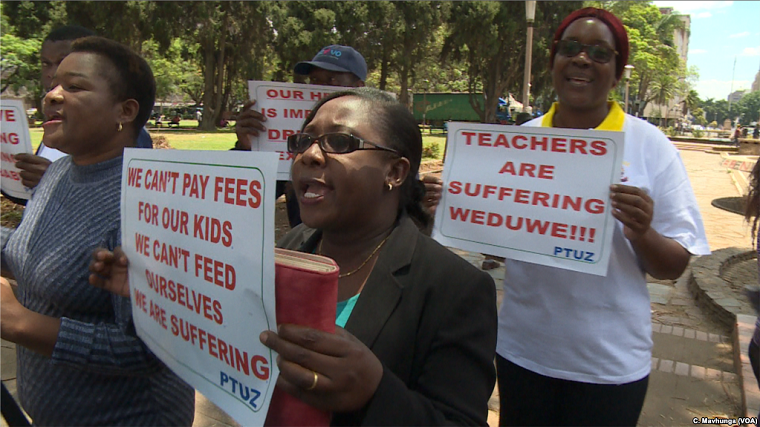 Zimbabwe’s teachers have filed a petition with Parliament in which they are seeking to be paid US$200 a month in addition to their current salaries.
Zimbabwe’s teachers have filed a petition with Parliament in which they are seeking to be paid US$200 a month in addition to their current salaries.
Speaker of Parliament, Jacob Mudenda, said Parliament received the petition on 14 June. It was from the Zimbabwe Teachers Association and the Progressive Teachers Union of Zimbabwe.
“I wish to advise the House that on 14th June, 2019, Parliament of Zimbabwe received a petition from the Zimbabwe Teachers’ Association (ZIMTA) and Progressive Teachers’ Union of Zimbabwe (PTUZ) beseeching Parliament to ensure that the Government reviews teachers’ salaries according to the prevailing inflation and interbank market rates and that the teachers be paid US$200 in addition to their current RTGs dollar salaries,” Mudenda said.
He said that the petition was referred to the Portfolio Committee on Public Service, Labour and Social Welfare.
Finance Minister Mthuli Ncube has repeatedly urged Zimbabweans to stop thinking in United States dollars and has said there is no way the government can pay salaries in US dollars because it does not earn any.
President Emmerson Mnangagwa said Zimbabwe will introduce its own currency before the end of the year and all transactions will have to be in the local currency. Those with foreign currency will have to change it into local currency first to use it.
A columnist for the Zimbabwe Independent said the new currency will have to be introduced before the end of September because the instrument used to introduce the RTGS dollar is only valid for six months.
It was gazetted in March.
(123 VIEWS)






0 Comments